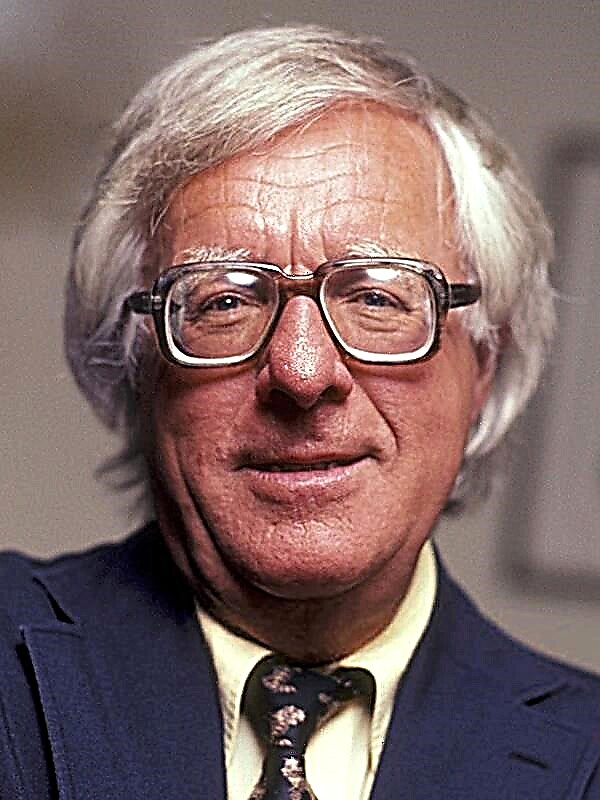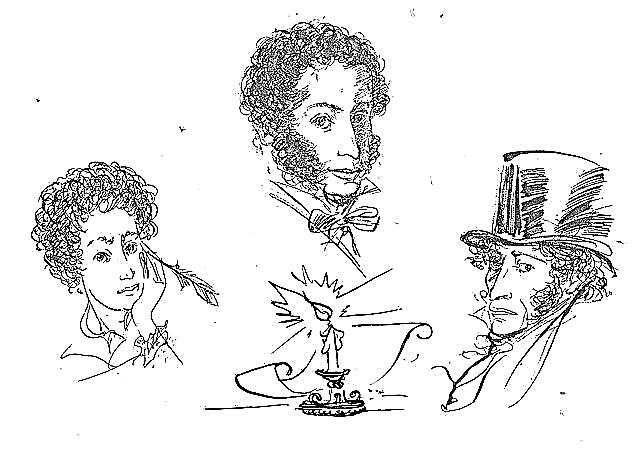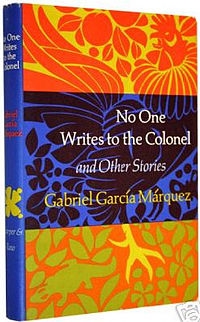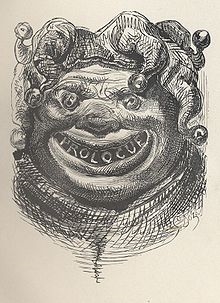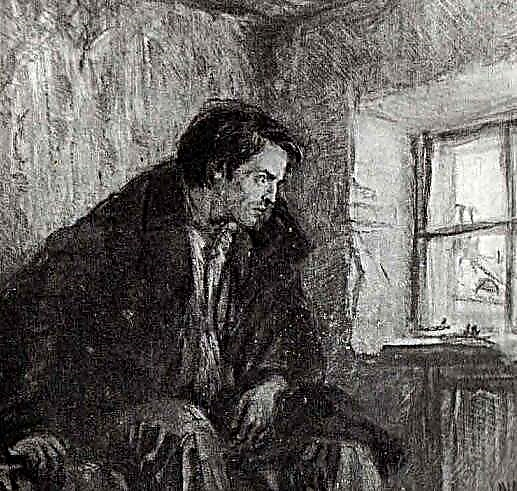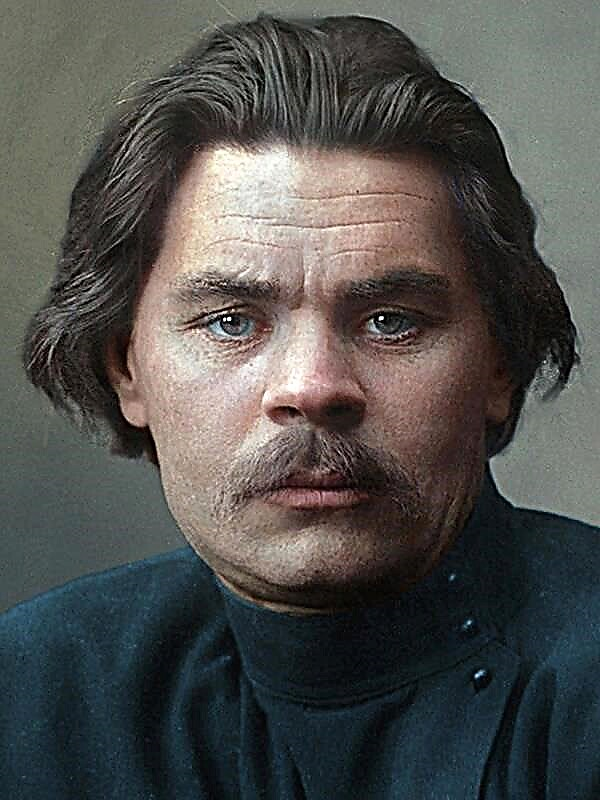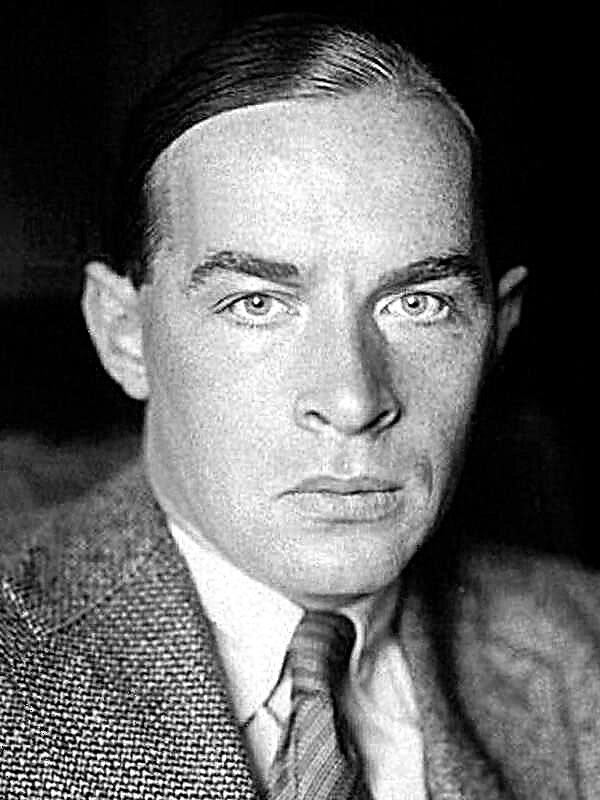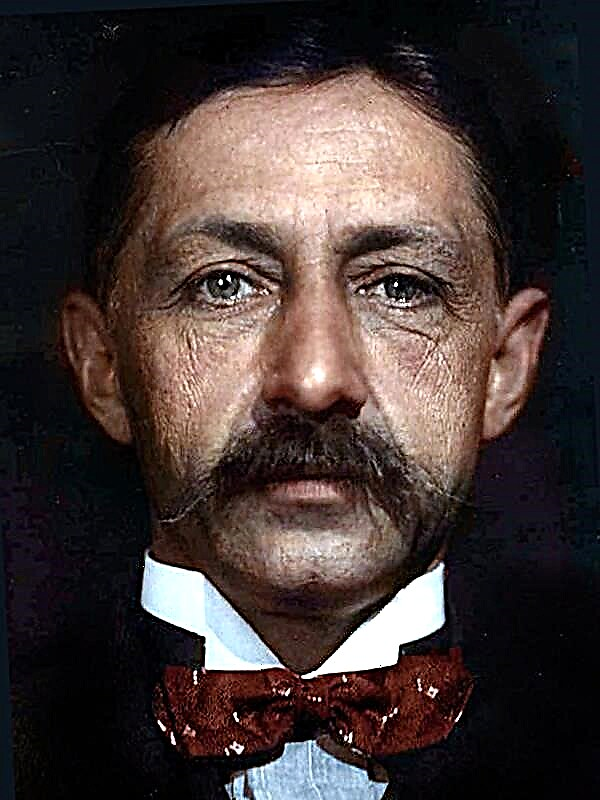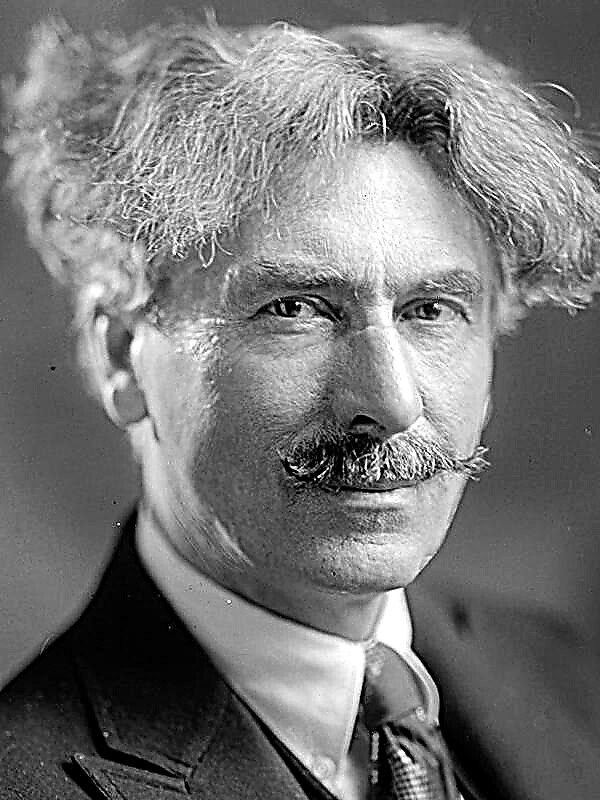Rui Diaz de Bivar, nicknamed Cid, was slandered by enemies and lost the favor of his lord, King of Castile Alphonse, and was sent to exile. Sid was given nine days to leave Castilian borders, after which the royal squad received the right to kill him.
Gathering vassals and relatives, only sixty people warriors, Sid went first to Burgos, but, no matter how the inhabitants of the city loved the brave baron, out of fear of Alfons, they did not dare to give him refuge. Only the brave Martin Antolines sent the Bivarians bread and wine, and then he himself joined the Sid squad.
Even a small squad needed to be fed, but Sid did not have money. Then he went on a trick: ordered to make two chests, cover them with skin, equip them with reliable locks and fill them with sand. With these stalls, in which allegedly the gold stolen by Sid lay, He sent Antolines to the Burgosian money-lenders Jude and Rachel, so that they would take the lari in pledge and provide the squad with a hard currency.
Jews believed Antolines and rolled off as many as six hundred marks.
Sid entrusted his wife, Don Jimen, and both daughters to Abbot Don Sancho, rector of the monastery of San Pedro, and he, having prayed and tendered farewell to his family, set off. According to Castile
time spread the news that Sid was leaving for the Moorish lands, and many brave warriors, eager for adventure and easy lives, rushed after him. Near Arlanson Bridge, as many as one hundred and fifteen knights joined Sid's squad, whom he joyfully greeted and promised that many deeds and innumerable riches would fall on their lot.
On the way of the exiles lay the Moorish city of Castejon. Sid's relative, Alvar Fanes Minaia, proposed to the lord to take the city, while he volunteered in the meantime to rob the district. Castiejon took a daring raid, and soon Minaia arrived there with the booty. The booty was so great that during the division each equestrian got a hundred marks, on foot - fifty. Prisoners were cheaply sold to neighboring cities so as not to burden themselves with their contents. Sid liked Castejón, but it was impossible to stay here for a long time, because the local Moors were tributaries of King Alfonso, and sooner or later he would besiege the city and the townspeople would have badly, since there was no water in the fortress.
Sid set up his next camp near the city of Alcoser, and from there raided the surrounding villages. The city itself was well fortified, and to take it, Sid went on a trick. He pretended to have withdrawn from the parking lot and was retreating. Alcoceri rushed after him in pursuit, leaving the city defenseless, but then Sid turned his knights, crushed his pursuers and burst into Alcoser.
In fear of Sid, residents of nearby cities requested help from the King of Valencia, Tamina, and he sent three thousand Saracens to the battle with Alcoser. After waiting a bit, Sid with the squad went out of the city walls and in a fierce battle turned the enemies to flight. Thanking the Lord for the victory, the Christians began to share the countless riches taken in the infidel camp.
The mining was unprecedented. Sid called Alvar Minaya to him and ordered him to go to Castile in order to present Alfonso with thirty horses in a rich harness, and also to report on the glorious victories of the exiles. The king accepted Sid's gift, but told Minaia that it was not yet time to forgive the vassal; but he allowed everyone who wanted to join the Sidovskaya squad with impunity.
Sid, meanwhile, sold Alcoser to the Moors for three thousand marks and set off on, robbing and taxing the surrounding areas. When Sid's squad devastated one of the counts of Barcelona
Raimunda, who opposed him on a campaign with a large army of Christians and Moors. Sid's warriors prevailed again, Sid, having defeated Raimund himself in a duel, captured him. By his generosity, he released the captive without ransom, taking from him only a precious sword, Colada.
Sid spent three years in incessant raids. In the squad he did not have a single warrior who could not call himself rich, but this was not enough for him. Sid decided to take possession of Valencia itself. He surrounded the city with a dense ring and spent nine months besieging. On the tenth Valencians could not stand it and surrendered. Sid (and he took a fifth of any production) in Valencia accounted for thirty thousand marks.
The King of Seville, enraged that the pride of the infidels - Valencia is in the hands of Christians, sent an army of thirty thousand Saracens against Sid, but it was also defeated by the Castilians, who now were thirty-six hundred. In the tents of the fleeing Saracens, Sid's warriors took three times as much as they had mined than even in Valencia.
Having become rich, some knights began to think about returning home, but Sid issued a wise order, according to which anyone who leaves the city without his permission would lose all the property acquired during the campaign.
Summoning Alvar Minaia once more, Sid again sent him to Castile to King Alphonse, this time with a hundred horses. In exchange for this gift, Sid asked his master to allow don Jimena and his daughters, Elvira and Sol, to follow him to Valencia, where Sid wisely ruled and even founded a diocese led by Bishop Jerome.
When Minaia appeared before the king with a rich gift, Alfons graciously agreed to let the ladies go and promised that they would be guarded by his own knightly squad to the border of Castile. Satisfied that he honorably fulfilled the order of the master, Minaia went to the monastery of San Pedro, where he pleased Don Jimena and his daughters with the news of an imminent reunion with her husband and father, and abbot don Sancho generously paid for the troubles. But Judah and Rachel, who, despite the ban, looked into the lari left by Sid, found sand there and now bitterly mourned their ruin, the Sid messenger promised to fully compensate the loss.
The Carryon Infants, the sons of the longtime foe Sid Count Don Garcia, were seduced by the countless riches of the ruler of Valencia. Although the infants believed that the Diasas were no match for them, the ancient counts, they nevertheless decided to ask Sid's daughters for marriage. Minaia promised to convey their request to his master.
On the border of Castile, the ladies were met by a detachment of Christians from Valencia and two hundred Moors led by Abengalbon, ruler of Molina and friend Sid. With great honor, they escorted the ladies to Valencia to Sid, who had not been so cheerful and joyful for a long time as when meeting his family.
Meanwhile, Moroccan King Yusuf gathered fifty thousand brave warriors, crossed the sea and landed near Valencia. To the alarmed women who were watching from the roof of the Alcazar how the African Moors set up a huge camp, Sid said that the Lord never forgets about him and now he is sending a dowry for his daughters in his hands.
Bishop Jerome celebrated Mass, dressed in armor and, in the front ranks of Christians, rushed to the Moors. In a fierce battle, Sid, as always, prevailed and, together with new fame, acquired the next rich booty. The magnificent tent of King Yusuf, he intended as a gift to Alphonse. In this battle, Bishop Jerome was so distinguished that Sid gave the glorious cleric half of the five owed to him.
From his share, Sid added two hundred horses to the tent and sent Alphonse in gratitude for the fact that he had released his wife and daughters from Castile. Alphonse very graciously accepted the gifts and announced that the hour of his reconciliation with Sid was at hand. Then the infants Carrion, Diego and Fernando approached the king with a request to grab the daughters of Sid Diaz for them. Returning to Valencia, Minaia told Sid about the king’s offer to meet him for reconciliation on the banks of the Tagus, as well as the fact that Alfons asked him to give his daughters a wife to the Infante Carrion. Sid accepted the will of his sovereign. Having met in a designated place with Alphonse, Sid- "prostrated himself before him, but the king demanded that he immediately stood up, for it was not fitting for such a glorious warrior to kiss his feet" even to the greatest of the Christian rulers. Then King Alphonse publicly solemnly proclaimed the forgiveness of the hero and declared the infants engaged to his daughters. Sid thanking
King, invited everyone to Valencia to the wedding, promising that not one of the guests will not leave the banquet without rich gifts.
For two weeks, guests spent time at feasts and military fun; on the third they requested home.
Two years have passed in peace and fun. The sons-in-law lived with Sid in the Valencian Alcazar, unaware of troubles and surrounded by honor. But then trouble once happened - a lion burst out of the menagerie. The court knights immediately rushed to Sid, who was sleeping at that time and could not protect himself. The infants became disgraced with a fright: Fernando hid under a bench, and Diego took refuge in the palace press, where he smeared mud from head to toe. Sid, having risen from the bed, unarmed went to the lion, grabbed him by the mane and put him back into the cage. After this incident, the Knights of Sid began to openly taunt the infants.
Some time later, a Moroccan army reappeared near Valencia. Just at that time, Diego and Fernando wanted to return to Castile with their wives, but Sid prevented the fulfillment of the intention of the sons-in-law, inviting him to go out into the field the next day and fight with the Saracens. They could not refuse, but in battle they showed themselves to be cowards, which, to their happiness, the father-in-law did not know. In this battle, Sid performed many feats, and at the end of his fight on his Babiuc, who formerly belonged to the king of Valencia, pursued King Bukar and wanted to offer him peace and friendship, but the Moroccan, relying on his horse, rejected the offer. Sid caught up with him and chopped the Colada in half. He took a dead Bukar sword, nicknamed Tyson and no less precious than Colada. In the midst of the joyous celebration that followed the victory, the son-in-law approached Sid and asked to go home. Sid let them go, giving one Colada, another Tyson, and, in addition, supplying untold treasures. But the ungrateful Carryonians conceived the evil: greedy for gold, they did not forget that by the birth of a wife they were much lower than them and therefore unworthy of becoming mistresses in Carrion. Somehow, after spending the night in the forest, the Infants ordered the companions to move forward, because they supposedly want to stay alone in order to enjoy with their wives love joys. Left alone with Dona Elvira and Dona Sol, the treacherous Infants told them that they would leave them here to be eaten by animals and scolding people. No matter how noble ladies appealed to the mercy of the villains, they stripped them, beat them to death, and then as if nothing had happened continued the path. Fortunately, among the satellites of the infants was Sid's nephew, Feles Munoz. He was worried about the fate of his cousins, returned to the place of spending the night and found them there, lying unconscious.
The Infants, returning to Castilian borders, shamelessly boasted of the insult that the glorious Sid had suffered from them. The king, learning about the incident, was afflicted with all his heart. When the sad news reached Valencia, the angry Sid sent an ambassador to Alphonse. The ambassador conveyed to the king the words of Sid that since it was he who had caught Don Elvira and Don Sol for the unworthy Carrionians, he now had to convene the Cortes to resolve the dispute between Sid and his offenders.
King Alphonse admitted that Sid was right in his demand, and soon the counts, barons, and other nobles called to him appeared in Toledo. No matter how afraid the infants were to meet Sid face to face, they were forced to arrive at the Cortes. With them was their father, the cunning and treacherous Count Garcia.
Sid set out the circumstances of the meeting before the meeting and, to the joy of the Carrionans, demanded only return the priceless swords to him. Relieved, the infants handed Alfons Colada and Tyson. But the judges had already pleaded guilty to the brothers, and then Sid demanded that the wealth that he endowed the unworthy sons-in-law be returned. Willy-Nilly Carrionians had to fulfill this requirement. But in vain they hoped that, having received their good back, Sid would calm down. Here, at his request, Pedro Bermudez, Martin Antolines and Munio Gustios stepped forward and demanded that the Carrionians in the fights with them wash away the shame inflicted on the daughters of Sid. The infants were most afraid of this, but no excuses helped them. They appointed a duel according to all the rules. The noble Don Pedro nearly killed Fernando, but he admitted defeated; Don Martin did not have time to get together with Diego, as he fled in fear from the lists; the third fighter from the Carrionians, Asur González, wounded, surrendered to Don Munio. So God's court determined the right and punished the guilty.
Meanwhile, ambassadors from Aragon and Navarra arrived at Alfonso with a request to marry the daughters of the hero Sid for the infants of these kingdoms. The second marriage of the daughters of Sid was incomparably happier. Spanish kings still honor the memory of Sid, their great ancestor.

